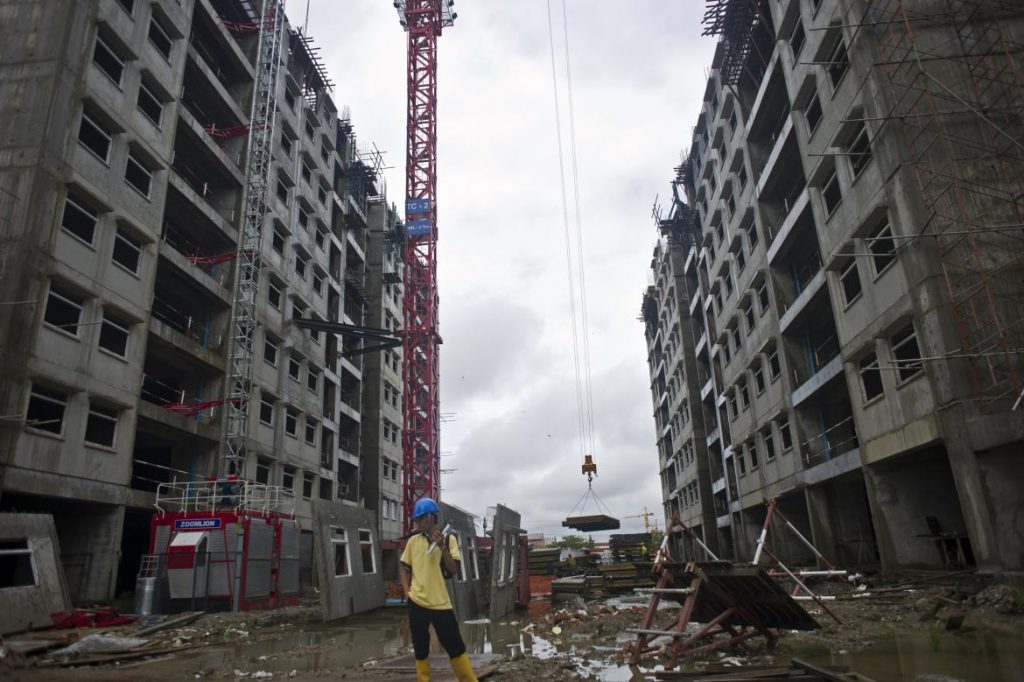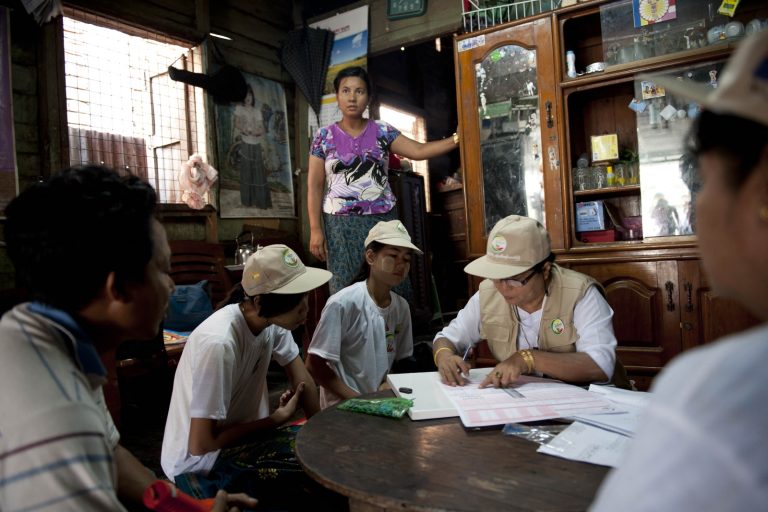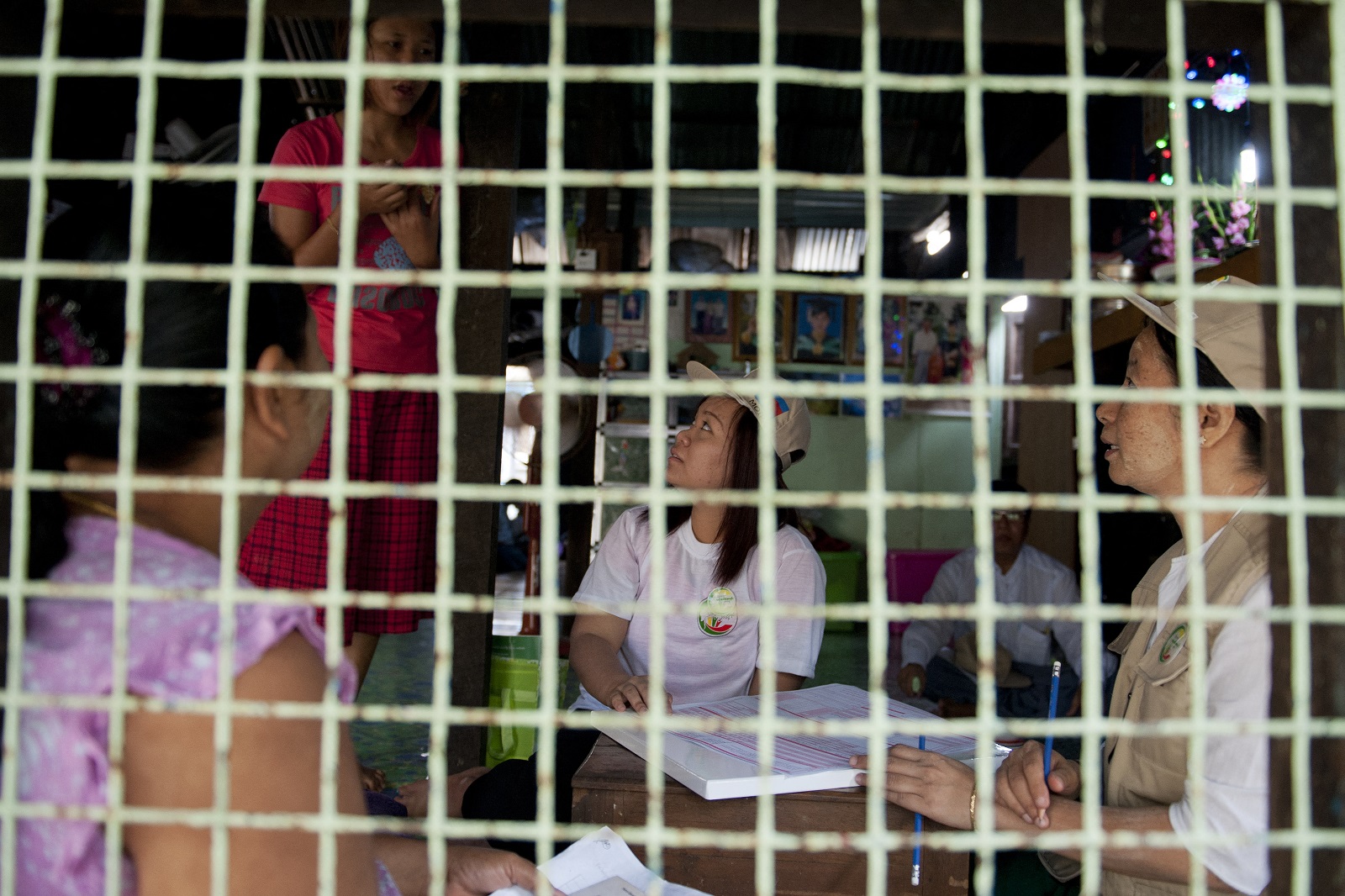Job creation will be key to Myanmar’s future economic growth, writes Yoma Strategic Holdings chairman Serge Pun.
November 8, 2015 will be remembered as an historic day for Myanmar. An estimated 80 percent of 30 million eligible voters went to the polls. The elections resulted in a landslide victory for Daw Aung San Suu Kyi’s party, the National League for Democracy over the incumbent Union Solidarity and Development Party. The NLD secured 78 percent of the votes. I do not think anyone was surprised with an NLD victory, but the margins were far greater than anticipated.
It was perhaps a bittersweet victory, to repeat the success and numbers of the annulled 1990 election. The USDP also seemed taken aback by the level of their defeat, particularly in the Ayeyarwady Region, long considered their stronghold.
By all accounts, the election was supposed to be volatile. Many waited with bated breath for outbreaks of violence. Still others stocked up on rice, oil, and water. Yet on the morning of November 8, there was nothing but calm when I went to my voting station. As I stood in line, I saw smiles, peaceful demeanours and those in line were united by a feeling of doing one’s duty for the nation.
The people of Myanmar should be proud of that day. There were few reported incidents of election day irregularities aside from minor technical errors. The country was lauded for a job well done, for doing the impossible task of holding a mostly free and fair election given the political climate. Both President U Thein Sein and Commander-in-Chief Senior General Min Aung Hlaing congratulated Aung San Suu Kyi on her party’s victory. No one was expecting that level of camaraderie and grace.
But, there should be no delusions about the road ahead and the NLD can ill afford to be complacent about its achievements. The NLD possesses enormous political capital and it ought not to be wasted. There might never be a time in Myanmar’s history when everyone is as unified and optimistic about the future. President U Thein Sein has promised a smooth transition and the army has agreed to uphold the results. I believe them. I think the army is tired of fighting and the majority wants to go back to the barracks after so many years on the front lines.
Support more independent journalism like this. Sign up to be a Frontier member.
The new parliament will convene on February 1 and appoint a new Speaker, thereafter selecting a president. Before the new president is chosen, I hope the NLD will also focus on building up, within its own ranks, its technical and managerial skills where they are lacking.
There are many who are willing to give their time and knowledge to help build the capacity of a truly democratic government. In addition, there are many good administrators and skilled bureaucrats from the incumbent regime who know the system well and should not be sidelined. They should be included in the formation of a new government if they are willing to work towards change.
As a businessman, I am not too worried about our economic trajectory with the new administration. Some have criticised the NLD for being administratively inexperienced, but I believe they will be pro-growth and pro-business. They acknowledge their shortcomings and are willing to hear ideas. The party has already released two manifestos – an economic and general manifesto – which gives a glimpse of their plans, such as an emphasis on the agricultural sector, tax collection and improving infrastructure.
I cannot predict their success but believe the NLD will get results if they choose appropriate ministers and policymakers. We all wait anxiously to hear about the incoming line-up of ministries.
In any case, business goes on. Truth be told, Myanmar’s economic conditions are at such a low base that it can only improve from here, at least for a few years. For the past five years, Myanmar failed to capitalise on the surge of foreign direct investment opportunities due to its institutional incapacity.
Many developing nations faced a shortage of foreign investment, yet we had the opposite ‘problem’. Furthermore the government failed to give adequate support to investors already in the country. Five years on, we are still woefully underequipped in terms of infrastructure, energy, and human capital.
We are at a stage where we need to create millions of jobs to pull people out of poverty. I would recommend two to three million jobs as a start. That is 1,000 factories employing 2,000-3,000 people each. There can be no peace without job creation and no development without job creation. The most efficient way to begin this process is to foster an export-driven, labour intensive economy.
It would not be an understatement to say that corruption has cost Myanmar millions, if not billions of dollars in investment and domestic income. No one wants to do business in any country on uncertain terms and corruption is one of the greatest destabilising factor in the current economy.
Manufacturing and exporting goods the rest of the world needs will be the most effective way to raise capital and to break even on the country’s deficit, which amounted to US$4.9 billion for the 2014-2015 fiscal year, about 3.5 percent of GDP. Myanmar imported more than US$16 billion worth of goods and exported US$11 billion.
Nonetheless, this is not too worrying in the short term because emerging and developing economies typically experience a deficit as a result of foreign investment. Restructuring the economy to focus on export-driven manufacturing would also be the fastest way to obtain foreign currency reserves which would partially stabilise the economy in the long term. Myanmar should thus invite companies that both want to do business in the country, and have the know-how to help build a strong economic foundation.
An export-driven economy would also maximise the nation’s job creation potential. According to the World Bank, Myanmar has one of the most promising labour forces in the world, with about 30 million people of working age. But, the new administration and citizens alike must be realistic about the country’s labour capabilities.
If I have a message for the NLD, it is to avoid the rhetoric and promises of a high-tech economy, for which we are not ready. Create entry-level work for the labour force which though not glamorous, is a more realistic and manageable goal. With the other major economies in the region shifting away from manufacturing into more highly skilled industries, this is an opportunity for Myanmar to take advantage of regional labour needs.
Thilawa, a Special Economic Zone some 25 kilometres south of Yangon, is a good working example of foreign investment and manufacturing being used in the right way. The government streamlined the processes for big companies to create a manufacturing hub, including tax incentives, infrastructure development and land pricing controls.
However, Thilawa is too small scale. It is only 6,200 acres and can only reasonably employ about 200,000 people. It needs to scale up. There needs to be a working model that can employ the vast labour force through manufacturing, extending beyond small pockets of Myanmar.
To augment job creation and growth, the importance of national reconciliation and government transparency cannot be stressed enough. Addressing these two issues would help create greater social and economic stability. National reconciliation is one of the key pillars of the NLD’s manifesto.
The Nationwide Ceasefire Agreement that was signed on October 15, 2015 in Nay Pyi Taw was a good start, but only eight groups signed the agreement, less than half of the invited parties. U Khun Htun Oo, chair of the Shan Nationalities League for Democracy, said that he has reached out to The Lady in the hopes that she would help to resolve the fighting between Shan forces and the Tatmadaw. The Arakan National Party has openly stated it would work with the NLD for the purpose of reconciliation. Additionally, the Karen National Union, the strongest proponent of the ceasefire agreement, has openly declared that the purpose of putting down arms is to promote development for their people. These are all opportunities for the NLD to build bridges across ethnic lines, something that has never been afforded to a national party previously.
Ensuring transparency and tackling corruption is also vital. Corruption is one of the greatest barriers to development and hinders a country’s true potential. It has long been accepted that corruption in countries is associated with lower GNP per capita, investment levels, and growth rates. It would not be an understatement to say that corruption has cost Myanmar millions, if not billions of dollars in investment and domestic income.
No one wants to do business in any country on uncertain terms and corruption is one of the greatest destabilising factors in the current economy. It is inefficient for businesses and has no benefit structurally in terms of long-term planning.
Despite the many challenges ahead, I am optimistic about the new administration and that the economy will continue to grow. I can only stress the importance of maintaining a realistic assessment of what the country can achieve according to the people’s skills and current resources.
A version of this article was delivered as a speech presented to senior executives of the Bangkok Bank in the Thai capital on December 2015.







